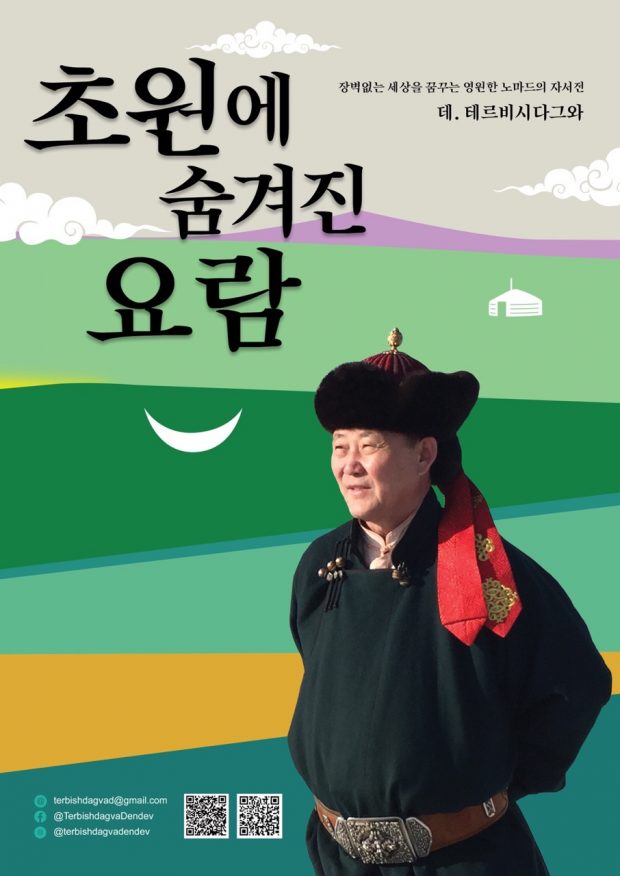
Publication Party of a Mongolian senior politician’s book ‘Cradle Hidden in the Meadow’

The publication party of a book ‘Cradle Hidden in the Meadow,’ which encompasses life and philosophy of Mr. Terbishdagva, who served as Deputy Prime Minister and Mongolian ambassador of East Germany, will be held at the Great Conference Hall of the National Assembly Building on June 13th.
This publication party is co-hosted by the Embassy of the Mongolian People’s Republic in Korea and Democratic Party Politician Kim Young-joo, who was appointed as the Deputy Speaker of National Assembly of Korea, with the sponsorship of RHP KOREA.
This book narrates the personal story of Mr. Terbishdagva as a Mongolian senior politician, along with the era of communist ideologies and scenes of corruption and political-economic confusion caused by the transition towards capitalism. Here, it sheds new light on the Mongol ancient history and Genghis Khan’s imperialist era with a new perspective.
In between powers of Russia and China, the author ruminates over Mongolia in modern times, which has adopted the monarchy, republic, communist-socialism led by Marx-Leninism, and free market democracy, based on his experiences.
The author also calls for ‘Mongolians to recover national emotion as nomads and to open a new era of peace and prosperity by putting significance on nature and human beings.’
With the subtitle ‘Biography of an Eternal Nomad Dreaming of the Borderless World,’ the book depicts emotions he had during the fall of the Berlin Wall in the late 1980s.
“With the wall I fell down. My belief towards communism built under Lenin’s teachings fell down. Two different worlds embraced each other at a glance. However, beyond passion and happiness was the state of confusion. As many socialist countries including my motherland Mongolia started to adopt a market economy and accumulate private property, other walls began to emerge among politicians and capitalists.”
How did the author, who grew up in the meadows of Mongolia as a son of nomad and held various government posts, decide to publish his book in Korean?
He says: “It’s because there are a lot of connections between Mongolia and Korea, especially in turbulent modern history, honor for adults comprising the Eastern culture, respect for family and traditions, and historical and cultural pride in the motherland.”
The author does not hesitate to criticize flaws of the capitalist system, where corrupt politicians frustrate the desire of democratization.
He states: “A definite path to the democratic nation is to return to the pure state of mind of nomads, who pursued a smooth harmony between people and nature.”
There is much attention towards what the author will comment on in front of Korean politicians at the publication party of his book on the 13th. Written by Dong-yeun Kim


